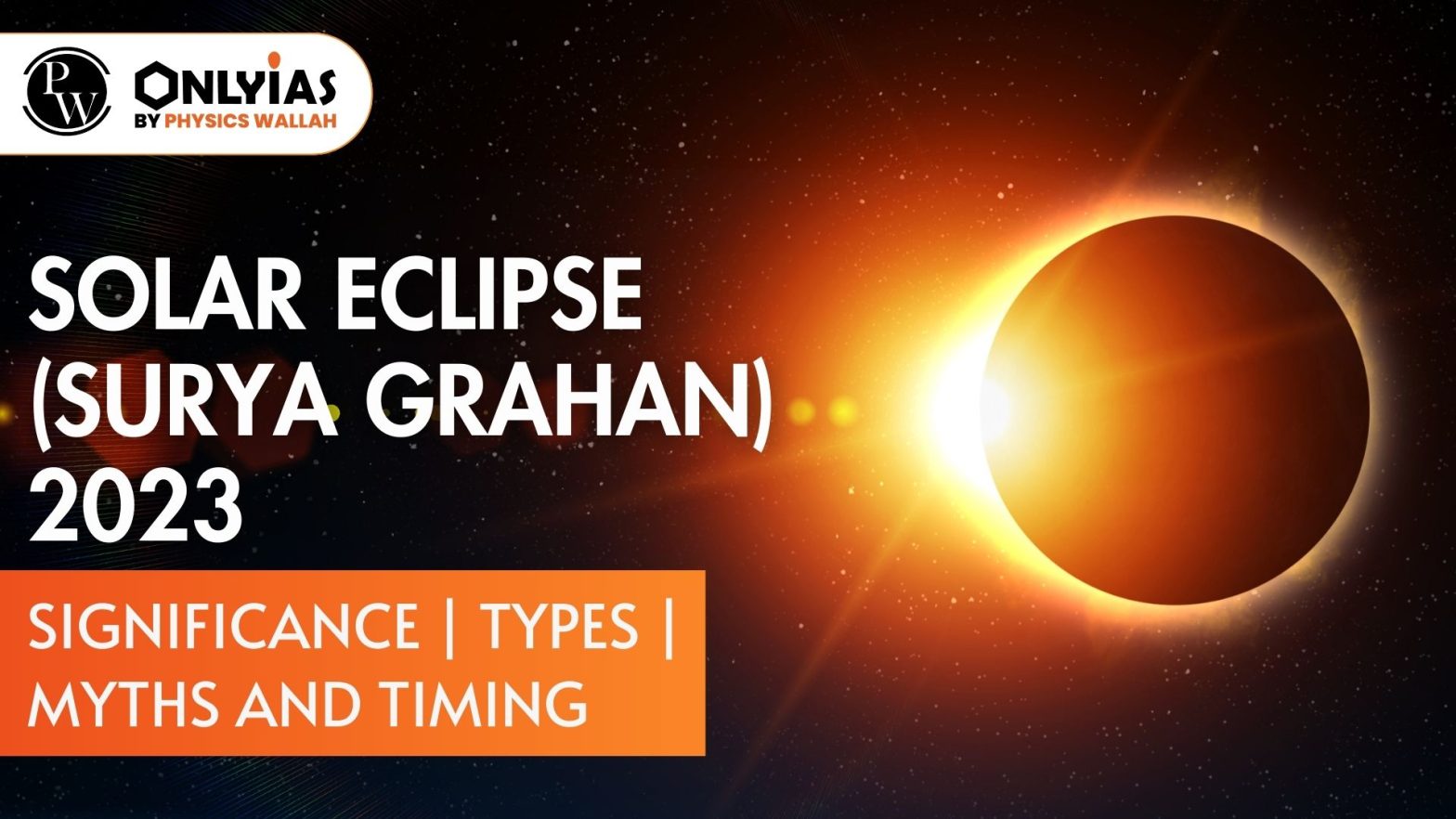A solar eclipse (Surya Grahan) is scheduled to occur on 14th October 2023. It will be visible in the western hemisphere.

Context: A solar eclipse (Surya Grahan) is scheduled to occur on 14th October 2023. It will be visible in the western hemisphere.
Conclusion
| Must Read | |
| NCERT Notes For UPSC | UPSC Daily Current Affairs |
| UPSC Blogs | UPSC Daily Editorials |
| Daily Current Affairs Quiz | Daily Main Answer Writing |
| UPSC Mains Previous Year Papers | UPSC Test Series 2024 |
Solar eclipse (Surya Grahan) is an astronomical event where the Moon passes between Earth and the Sun, obscuring the view of the Sun from a small part of the Earth, either completely or partially.
The annular solar eclipse is also called the ‘ring of fire’ because the moon will not cover the sun completely, thereby leaving a thin ring of sunlight called “ring of fire” effect.
For a solar eclipse (Surya Grahan) to occur, the moon must pass between the Earth and the Sun. Despite the moon being much smaller than the Sun, it can block the sunlight due to its position away from Earth.
Total solar eclipse, annular solar eclipse, hybrid solar eclipse and partial solar eclipse are different types of solar eclipses.
What is the difference between a solar and lunar eclipse? During a Solar eclipse, the moon passes between Sun and the Earth while during a lunar eclipse, the Earth passes between the Sun and the Moon.
<div class="new-fform">
</div>
